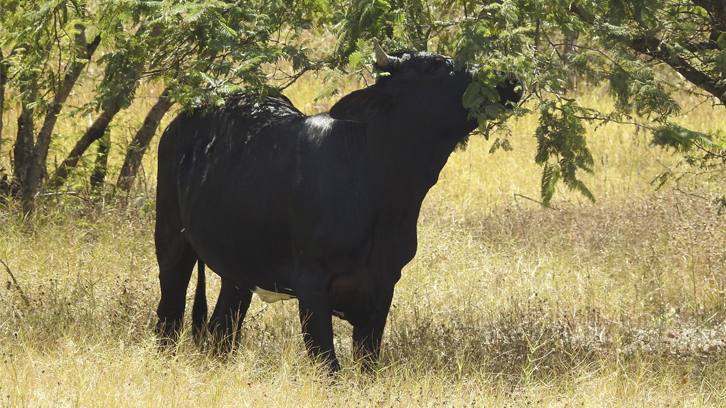What are the food preferences of wild and domestic ungulates in the dry tropics?

UAB researchers in collaboration with the Universidad Nacional Agraria and the Universidad Nacional Autónoma de Nicaragua have conducted a study to determine the food preferences of Nicaraguan cattle, sheep and goats, and of the white-tailed deer, a wild native herbivore. The results of the study will be used to design forestry and livestock systems that benefit both livestock and wild herbivores.
In Latin America and the Caribbean, livestock farming is one of the main land uses and is characterized by low levels of productivity, profitability, and impacts on the environment. In this context, silvopastoral systems favor ecological sustainability in agroecosystems of the Central American dry tropics. However, little is known about the preferences of livestock and large wild herbivores for woody forages.
In this sense, the preferences of cattle, sheep, goats and the only large autochthonous herbivore of the region, the white-tailed deer, for five species of forage trees common in the dry tropics of Nicaragua were studied under experimental conditions. Four of them are autochthonous (Acacia pennatula, Guazuma ulmifolia, Gliricidia sepium, Enterolobium cyclocarpum) and one exotic (Moringa oleifera), very well adapted to the conditions of the dry tropics.
Of the five forage woody species studied, cattle, sheep and goats preferred A. pennatula and G. ulmifolia, regardless of the time of year. These two species would be the ones of greatest interest in the design of forestry and livestock systems in the dry tropics. In addition, the introduction of M. oleifera to the livestock's food supply did not modify the preferences for native species, on the other hand, it does affect those of the white-tailed deer, which incorporates it well into its diet. Therefore, the use of these fodder trees for livestock feed is interesting not only for sustainable animal production, but also to support wild herbivores in the dry tropics of Central America.
Small Ruminant Research Group, Area of Animal Production, Department of Animal and Food Science, Universitat Autònoma de Barcelona (UAB)
ORCID number: orcid.org/0000-0002-3784-5248
References
López Benavides, K.; Rocha, L.; Serrano, E.; Bartolomé Filella, J. Feeding Preferences of Domestic and Wild Ungulates for Forage Trees in the Dry Tropics. Sustainability 2022, 14, 13430. https://doi.org/10.3390/su142013430

